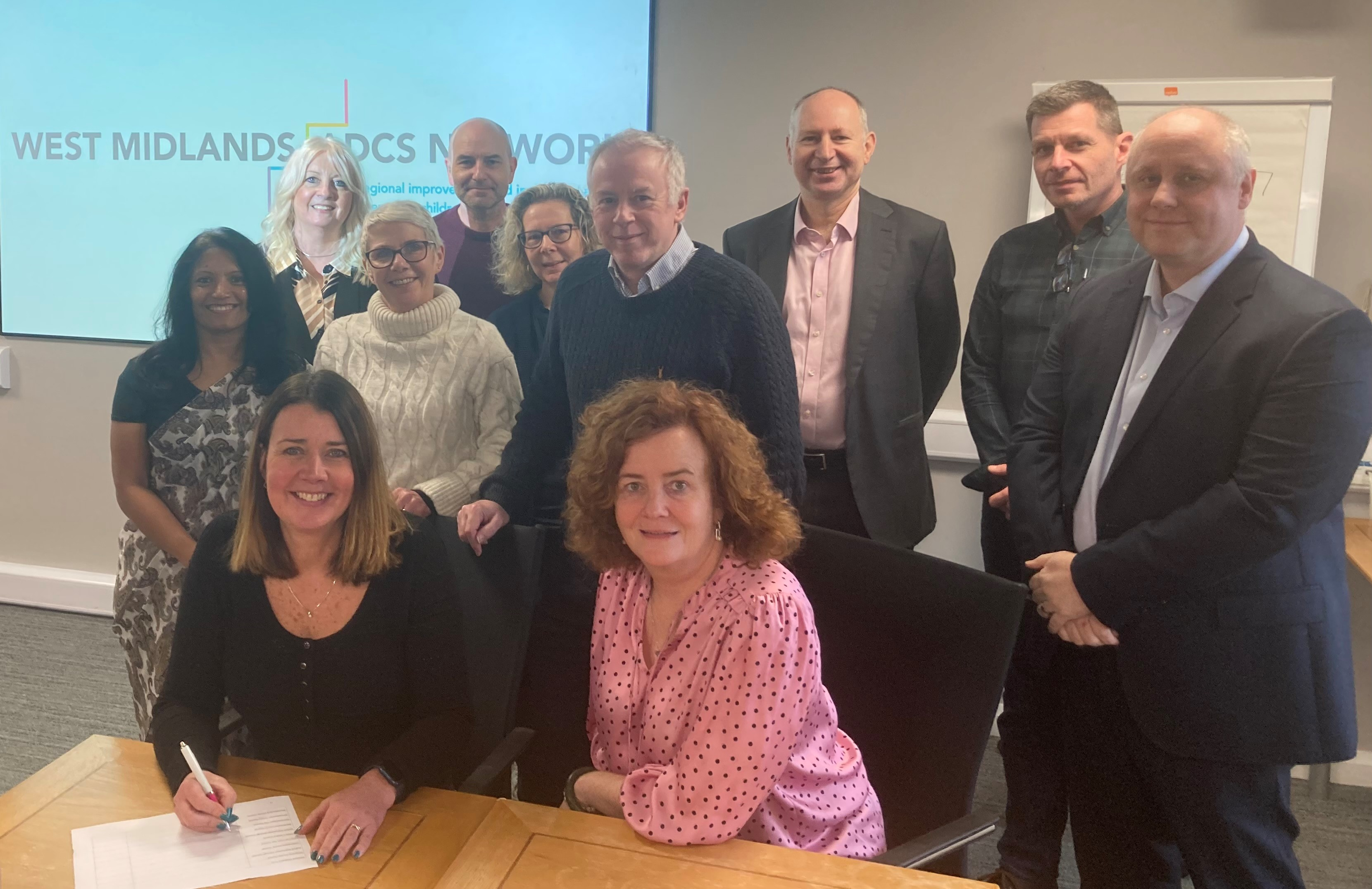West Midlands’ Collaborative Approach to Social Work: A Decade of Workforce Stability
Posted on: 27/03/2025
News
Colleen Male, Executive Director for Children’s Services at Walsall Council, explores how the West Midlands tackled agency staff chaos and transformed children's social work.
When you’re immersed in the day-to-day demands of social work, it’s easy to lose sight of the bigger picture. Ten years ago that picture looked pretty bleak in the West Midlands. Local authorities were competing against each other for agency staff, driving up pay rates in the process, adding to workforce churn and undermining the stability needed to deliver effective services.
Fast forward to the present day and it’s a very different scene. We’re working together, reducing our reliance on agency social workers and saving money at a time of scarce resources when budgets are under pressure and scrutinised more than ever. The turning point was the introduction of a memorandum of understanding (MOU) in 2015 which united all of the region’s 14 local authorities around a mutual agreement to abide by a set of principles governing the use of agency workers.
It introduced pay caps alongside other measures such as the 12-month rule, whereby no council or Trust in the region will employ an agency worker who has left a permanent role in a West Midlands authority within the last year. Since the MOU was launched, we’ve collectively saved £3.7m by preventing price wars and reducing our dependence on agency workers. It’s also put us ahead of the game.
When the Government published national guidance on the use of agency workers towards the end of last year, the West Midlands’ MOU only required minor tweaks to comply because we were already in that space. All of which makes it a good time to reflect on the MOU’s impact and potential learning points for councils in other regions. I’ll admit, I wasn’t optimistic back in 2015 and didn’t think we would be sitting here in 2025 with the MOU still in place and with all the things it’s achieved.
The West Midlands is made up of 14 local authorities and Trusts of widely differing size and scale – including the largest local authority in Europe as well as some of the smallest unitaries –with varying demands and priorities. Our children’s services are on different stages of improvement journeys, ranging from outstanding to inadequate. Recruitment and retention in the sector has been challenging for a number of years and we were previously pitted against each other in a battle to bring in agency staff to maintain vital services. So how have we brought together such a diverse range of organisations and rallied them around a common cause?
Firstly, it’s important to admit that there have been challenges along the way. The effectiveness of an MOU boils down to strength in numbers. If councils breach the terms of agreement – for example, by making offers above the pay cap, it undermines the consensus and damages trust. Ultimately, what’s the point in playing by the rules if others don’t?
One of the biggest lessons has been the need for adaptability and a willingness to hit the reset button. In 2022, we were seeing too many breaches and exemptions and brought in West Midlands Employers (WME) to review and relaunch the MOU. Exemptions are important, particularly in supporting authorities with pressing challenges, but they can’t become the norm.
WME’s impact has been absolutely key in the way it monitors and reports, holding local authorities and the managed service providers to account.? WME works with West Midlands Children’s Workforce Group, where social work managers and HR representatives from each local authority work in partnership.?This ensures transparency and close working with the region’s lead DCS for workforce and MOU (currently myself). The numbers speak for themselves: between 2022-24 we saved £2m – more than the previous seven years combined – and the number of agency workers paid above the cap almost halved.
Breaches and exemptions have fallen and so have average agency pay rates. We’re seeing more agency staff recruited to permanent roles, something that was previously unusual, with 114 people making the move across 10 councils between 2022-23. As the regional employers’ organisation, WME is ideally placed to play this role. It’s also involved in workforce development initiatives that are bringing greater stability to children’s services teams.
The MOU is an important part of creating a stable and supportive environment – the key to retaining staff – and delivering services that get the best possible outcomes for children and young people. Walsall Council was part of both the Department for Education’s Strengthening Families programme and more recently a Families First for Children pathfinder, testing out new ways of working based on building relationships with children and families.
We can only do that effectively if we have a stable workforce because of the continuity, experience and knowledge that brings. Finally, it’s important to be clear that the MOU isn’t about eradicating the use of agency workers. They play a critical role in bringing flexibility to the sector – whether covering for maternity leave or plugging other temporary gaps.
But my region’s bold action and willingness to unite around a common vision has injected common sense into the equation, competition has made way for greater collaboration and in the long run children, young people and their families will reap the rewards.
Take a look at the recent Tri-Sector Challenge event below.

